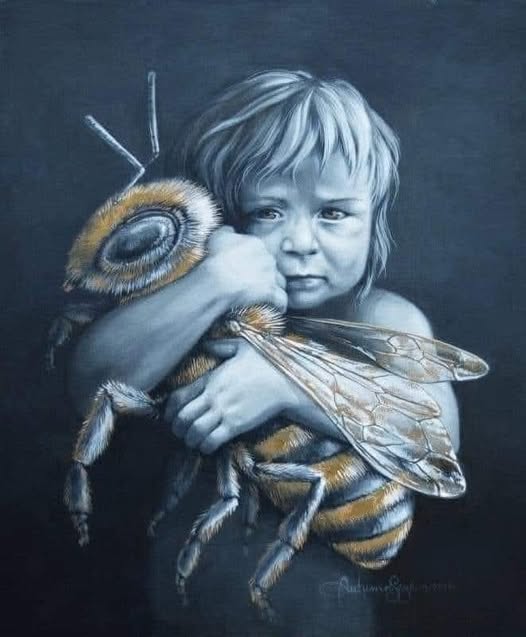The Bee Has Been Declared “The Most Important Living Being On The Planet”
- James Smith
- 0
- Posted on

In recent years, scientists and environmentalists have sounded an urgent alarm about a tiny but mighty creature: the bee. While bees may seem like simple insects buzzing from flower to flower, their role in our ecosystem is so vital that they have been declared “the most important living being on the planet” by various scientific and conservation organizations.
Why Are Bees So Important?
Bees are critical pollinators in both natural and agricultural ecosystems. According to the Food and Agriculture Organization (FAO) of the United Nations, about 75% of the world’s food crops depend, at least in part, on pollination. Bees are responsible for pollinating a wide variety of fruits, vegetables, nuts, and seeds that make up the cornerstone of global diets. Without bees, crops such as apples, almonds, berries, cucumbers, and many more would see drastic declines.
Beyond food production, bees contribute to biodiversity and ecosystem stability. By pollinating plants, they support the growth of trees, flowers, and other vegetation that serve as food and shelter for many different species. Bees help sustain the food chain, making them an essential part of life on Earth.

The Science Behind the Declaration
Several scientific bodies and environmental groups, including the Earthwatch Institute, have highlighted the critical role of bees in maintaining ecological balance. During a debate organized by the Royal Geographical Society of London, the Earthwatch Institute declared bees to be “the most important species on the planet.” This designation came after an extensive study of pollinators and their contribution to the survival of ecosystems.
Furthermore, researchers found that bees are the only living creatures that do not carry any known pathogens, making their interaction with plants and the environment uniquely beneficial.
A Global Crisis: Bees Are Disappearing
Despite their importance, bees are facing a dramatic population decline worldwide. The main causes include:
- Pesticides: Chemicals like neonicotinoids are highly toxic to bees, impairing their ability to navigate, reproduce, and survive.
- Habitat Loss: Urbanization, deforestation, and intensive agriculture are destroying the natural habitats bees depend on.
- Climate Change: Shifting weather patterns are disrupting flowering seasons and altering the availability of nectar sources.
- Diseases and Parasites: The varroa mite and other pests have decimated bee populations in some regions.
According to recent reports, nearly 90% of the global bee population has disappeared in some areas, raising alarms about the stability of food systems and ecosystems.

What Happens If Bees Go Extinct?
The extinction of bees would be catastrophic. Without them, many crops would fail to grow, leading to food shortages, economic crises, and a collapse of ecosystems. In fact, Albert Einstein is often quoted (though apocryphally) as saying, “If the bee disappeared off the face of the Earth, man would only have four years left to live.”
Whether or not Einstein said it, the statement underscores a stark truth: no bees means no food, no biodiversity, and no balance in the natural world.
What Can Be Done to Save the Bees?
Protecting bees is not just a task for scientists or governments—it requires global collective action. Here’s how we can help:
- Ban Harmful Pesticides: Many countries are now regulating or banning bee-harming chemicals. Support such policies and choose organic or pesticide-free produce.
- Plant Bee-Friendly Gardens: Flowers like lavender, sunflowers, daisies, and wildflowers provide essential nectar and pollen.
- Support Local Beekeepers: Buying local honey supports sustainable beekeeping practices.
- Reduce Lawn Mowing and Urban Landscaping: Let wild plants grow. They serve as habitats and food sources for pollinators.
- Educate and Advocate: Spread awareness about the importance of bees and push for bee-friendly legislation.
Conclusion
The bee’s title as “the most important living being on the planet” is well-deserved. These small creatures play an enormous role in sustaining the planet’s life systems. As their numbers decline, the urgency to protect and preserve them becomes more pressing.
The survival of bees is intertwined with our own. By protecting them, we’re not just saving an insect—we’re safeguarding our future, our food, and the planet we call home.